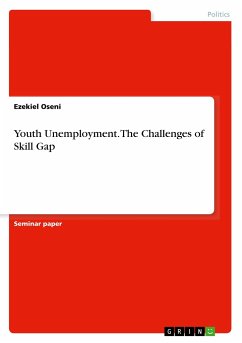In the post-World War II era, the U.S. government's full employment policy led to rapid mechanization of production by reducing the cost of financing investment. The mechanization of production displaced more blacks than whites because blacks were disproportionately unskilled. In addition, the growth in the import of manufactured goods further reduced the demand for unskilled labor. The author argues that the government should fill the gap with government employment and should discourage imports from developing countries.
Hinweis: Dieser Artikel kann nur an eine deutsche Lieferadresse ausgeliefert werden.
Hinweis: Dieser Artikel kann nur an eine deutsche Lieferadresse ausgeliefert werden.








